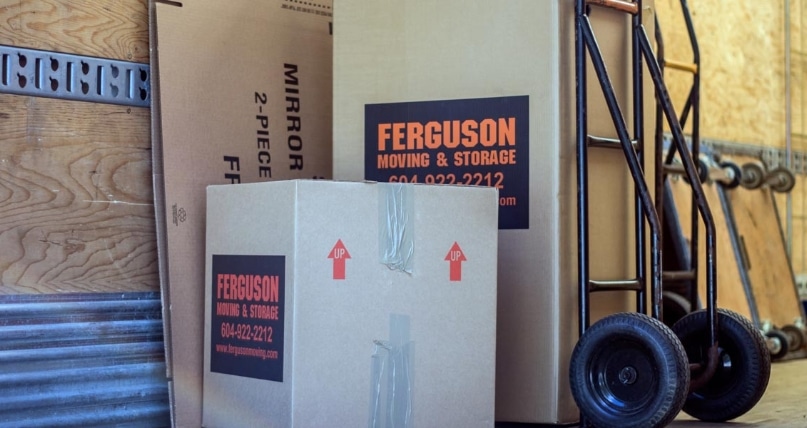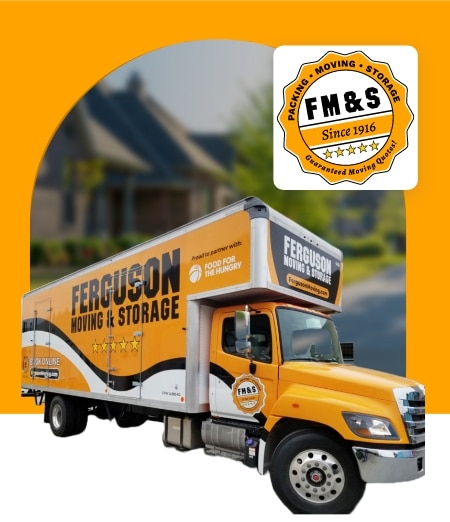
The majority of people who move feel as if they don’t have the time to set up a moving budget. Not being prepared financially could cost you more in the end. Small items such as re stocking your kitchen shelves, new door mats or linens all ads up quickly. Before you do anything we highly recommend setting a budget in place so you will be prepared and aware of your spending. Please NOTE items listed below should be listed as individual line items.
Creating your Moving Budget Template
An easy way to create budget template is using a software program; Microsoft Word or Excel are the programs we would recommend. Excel will allow you to use formulas for easy calculations.
If you would prefer something a little less technical and just don’t feel like spending the time setting up a document on your computer, head down to your local office supply store and pick up a bookkeeper’s record book. You may need to make a few changed to the column titles or entry boxes, but it will give you the fundamental of expense tracking that you’ll need. Having a good calculator or adding machine handy will make things much easier as well.
Moving Rates
When hiring a moving company, you will need to inquire about the following:
- Get an in Home Estimate: Includes Labor and fuel charges. Receive estimates from 3 moving companies. Even if you haven’t made a decision on which company you will be choosing, add the highest estimate to your budget.
- Additional Insurance: Make sure additional insurance is in your estimate onto your total moving costs. You may want to check with you home owners policy as well.
- Services & Extra Charges: Could include arranging appliances, moving a piano, crating etc. Ask the moving company to include this in your quote. Extra charges may include accessorial charges, expedited service charge, flight charge, long haul charges, long carry charges and shuttle charges.
- Claims/damage costs: Add in 5 percent contingency rate based on the total moving company fees. You may not need to include an amount here, but its better to be safe.
- Professional Packing: This is an optional service. Most moving companies design packing services based on your needs and will insure what they pack.
Do it yourself Moving
Moving yourself? Listed below are items you will need to include
- Truck Rental: Rental rate vary depending on the size of truck, whether you are moving one way or returning the truck to the same location, and what time of the month you will be renting the truck. Always inquire how many Km’s come free with the rental and what the charge is per Km’s after the daily allotted amount.
- Mileage/Fuel: Be sure to check with the rental agency as to how many Km’s your can expect per tank. If you are moving a fair distance find out the approximate cost of fuel along your route. Do this by going to the Fuel Calculator, a service offered b CAA.
- Insurance: Before calling your insurance and credit card companies, be sure to know the GVW on the vehicle being rented. Typically they do not cover any of the larger vehicles. If you are not covered by your own providers add in the insurance fee.
- Extra Equipment Rental: Dollies, loading ramp, blankets, furniture and mattress covers, boxes etc. Find out from the rental company the cost of renting/purchasing these items
- Incidentals: it’s better to plan for extra costs incase the price of fuel goes up, you make extra stops etc.
Travel to New Home:
- Transportation: If you taking a car as well as the moving truck, add into the costs for fuel, maintenance fees, such as oil, fluids and a pre-move check up. If you prefer, divide these costs into separate line items.
- Lodging: Research where you will be stopping along the way. Look into how much lodging will cost. Determine the amount of nights you will be staying and add this to your budget. You can check availability and rates online. www.expedia.com or www.hotels.com
- Meals: Including drinks and snacks, calculate the average meal per person.
- Child/Pet Care: Include in your fees any additional services you may require to care for family members or bets, before and after your move.
- Short Term Housing: If you and your family require short term housing include this into your budget.
Packing and Storage
- Packing: Determine the number of boxes, bubble wrap, news print, tape, labels, markers, mattress covers/padding you will be requiring and calculate the fee’s in as well. During an in home estimate your sales representative will be able to give you an idea of the quantity of items you will need to purchase.
- Storage Insurance: if you are storing valuables, include extra storage insurance to your budget so your items are covered. Note: Check with you home owners insurance to see if they will cover you for storage.
Selling Home/Moving from a Rental
- Commission: For sale of your home
- Lawyer/Title Fee’s
- Inspections/Appraisals
- Advertising
- Cleaning/Repairs
- Misc: Include additional purchases
- Breaking a lease: If you have moved out before the end of your lease or were unable to give your landlord enough notice, they may penalize you or keep you initial deposit.
Buying or Renting You New Home
- Lawyer Fee
- Title Search Fee
- Survey Fee
- Additional Fees
- Inspection/Appraisal
- Home or Apartment Insurance
- Redecorating Costs: This can be hard to determine. The best way to calculate is by looking at the largest room in your home and then which will need the most work or new items. Breakdown the costs (furniture, paint, fixtures, flooring etc.) and add it up. You can either do this for each room in your home or calculate an average cost for the entire home.
- Property Taxes/Strata Fees
- Utilities: Contact all the utility companies for pricing, or contact your current provider and inquire what they charge. Include telephone, cable, water, heat, electricity and any other services you currently have. For a rental unit, talk to you landlord and find out if any of these services are included in your rent.
- Apartment Rental Deposit
- Apartment Damage Deposit
- Apartment Pet Deposit
- Misc. Items could include parking space charges, garbage pick up, etc.
Total the Costs:
- Add up the total costs. This will be your subtotal line
- Multiply the subtotal by 5% (tax)
- Add the 5% to the subtotal to obtain your total moving costs
Now you have completed your budget, you may wish to try and find ways to save during your move and the real costs of moving before and after.
That wasn’t so bad, was it?

Categories
Moving Tips

This is the heading
Lorem ipsum dolor sit amet, consectetur adipiscing elit. Ut elit tellus, luctus nec ullamcorper mattis, pulvinar dapibus leo.

This is the heading
Lorem ipsum dolor sit amet, consectetur adipiscing elit. Ut elit tellus, luctus nec ullamcorper mattis, pulvinar dapibus leo.
We make moves easy for you.
- Local Moving
- Long Distance Moving
- Seniors Moving
- Piano Moving
- Item Relocation
- Overnight and Long-term Storage
- Packing Supplies





